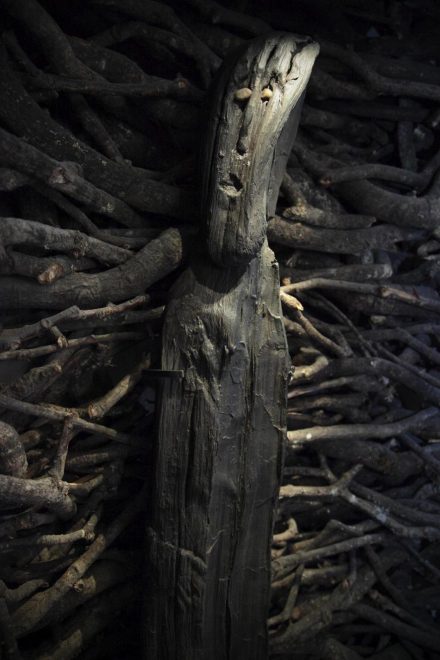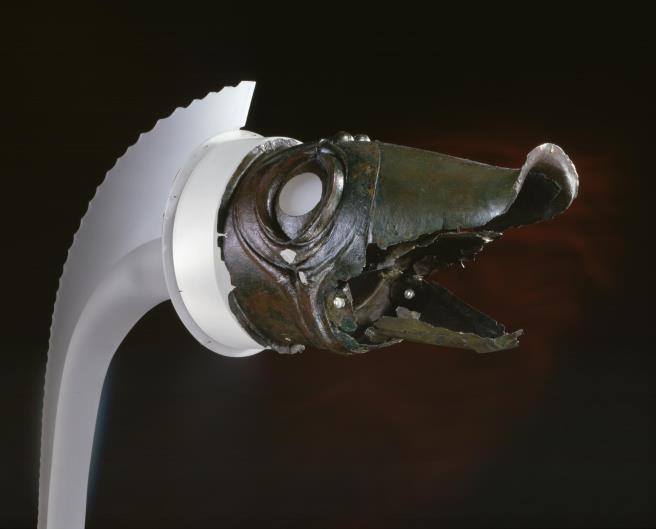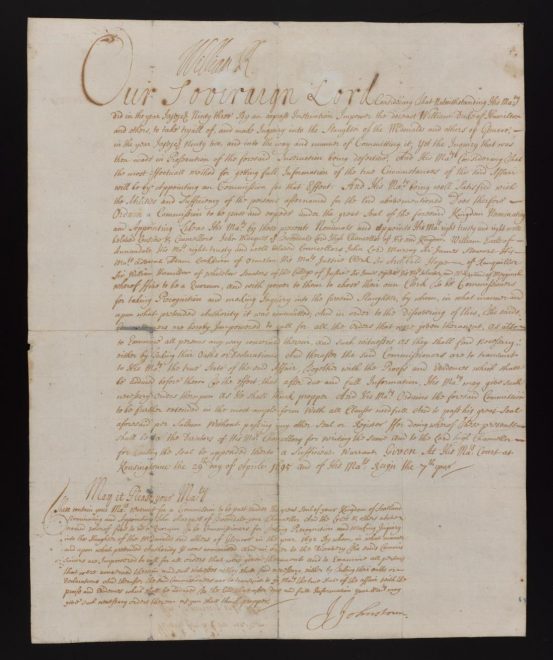Fantastical tales have been drawing the world’s gaze to Scotland for centuries. Game of Thrones, with its towering castles, rugged broadsword-wielding warriors, and great wall holding back the fury of the distant north is the latest story to inspire people to seek out the true history behind it.
As it happens, there are a great many objects on display in the National Museum of Scotland that allow us to do just that. Here a few of the ones that I find myself returning to wonder at again and again.
Ballachulish Figure
Scotland may not have White Walkers, but the Cailleach – a ‘diving hag’ goddess known as the Queen of Winter – is every bit as formidable. Legend tells how she created Scotland’s mountains and rides through their high passes upon a chariot drawn by great black hounds. She brings the winds of winter down upon Scotland when she washes her great plaid in the Corryvreckan whirlpool and dries it on the shore, the icy crystals from it bringing cold and decay to the land. Every Beltane her subjects must ritually overthrow her, for instance through fire festivals like the one that takes place on Edinburgh’s Calton Hill, and her icy grip withers – if only for a time.
This haunting 2,500 year-old alder-carved figure was recovered along the banks of Loch Leven. Although its precise representation remains mystery, one of the Cailleach’s traditional retreats are the mountains of Lochaber. Is the Ballachulish figure the Queen of Winter herself?

Deskford Carnyx
The Caledonians who fought the Romans in the first century CE may not have had magical horns like the one in Game of Thrones that can bind dragons to its will, but Roman soldiers were no less terrified of the carnyx.
Used across the Celtic world, the carnyx may have emitted an eerily beautiful tune that could be blown ceremonially or in anger before a battle. The Deskford Carnyx was recovered in Banffshire in the early 19th century and the Museum now holds it alongside a stunning recreation. It is possible that the Deskford Carnyx was used at the climactic Battle of Mons Graupius, a battle that bears a striking resemblance to the Wildling’s assault on the Wall in Game of Thrones.

Warrant for a commission of inquiry into Glencoe
Guest right is as old as the Highland hills themselves. Once given food and drink, a guest and a host are honour-bound to do each other no harm. The devastating betrayal of this ancient principle is why the Massacre of Glencoe (13 February 1692) remains a poignant part of Scotland’s national conscience.
This warrant launched an inquiry into who was responsible for the massacre, though few would be held to any kind of account. George R. R. Martin has stated many times that the Massacre of Glencoe, along with the Black Dinner at Edinburgh Castle in 1440, is what gave him the idea for Game of Thrones’ most infamous scene – the Red Wedding.

There are many, many more objects in the collections that speak to events, characters, and themes in Game of Thrones – commemorative altars from Rome’s final frontier, the Antonine Wall, for instance, a Viking burial from Orkney (as the Vikings inspired Game of Thrones’ ironborn), or the seal of Robert the Bruce (who makes an excellent character comparison alongside Thrones’ Robert Baratheon).
So, if you can’t visit Westeros, the next best thing to a sneak peek is a visit to the National Museum of Scotland.
